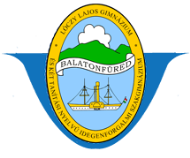My grandfather and I share some things in common. We are both called Zoltan Dienes, for example! In addition, we both have an interest in how people learn. I have been particularly interested in how people can learn about sometimes complex structures when they do not necessarily know that they are learning and they cannot say what it is they have learnt. This sort of learning is called implicit learning (see Berry and Dienes, 1993). What I would like to do is to discuss the relation between implicit learning and my grandfather's principles of education.
Implicit learning occurs pervasively in our life. A good example is how we learnt the grammar of our native language. We know this complex grammar perfectly and can use it in a fraction of a second of produce and comprehend sentences. Yet most people cannot describe any but the simplest rules of the grammar; even linguists do not have a complete grammar of any natural language! Another example is how we learn the rules of social engagement: We can explicitly describe many aspects of these rules, but in general we know more about getting on with people than we can freely articulate. Or consider the experience of listening to music. We can at once judge the style of the music (Beatles or Bach?) even before we know how we have done it; and we can like a style of music without having to be able to say what structural properties of the music lead us to like it. In Chapter Five, my grandfather gives an example from learning mathematics. After experience of a function determining the order of items in a sequence, children can successfully predict the next item while claiming they are just guessing. In fact, the development of implicit knowledge in people exposed to sequences has been extensively explored by psychologists interested in implicit learning (e.g. Reber, 1993).
Implicit learning is unconscious learning in the sense we are not conscious of the knowledge we have learnt. Explicit learning is learning that occurs when we are conscious of the knowledge we have learnt; we can then in general describe the knowledge that guides our actions. For example, knowledge of the recipe I follow in cooking a cake is often explicit. Following a worked maths example in order to solve a related problem would involve explicit knowledge. In Chapter Five, when people had learnt a particular group structure involving yellow and red cards, and could say "If I play a yellow, you show the same card that you showed before, but when I play a red, you change the colour", these people had demonstrated that they had acquired explicit knowledge.
Learning about a domain will often involve both implicit and explicit components. Given that one important aim of my grandfather's methods is to produce understanding, it is important to consider what role implicit and explicit learning may play in developing an understanding of a concept.






